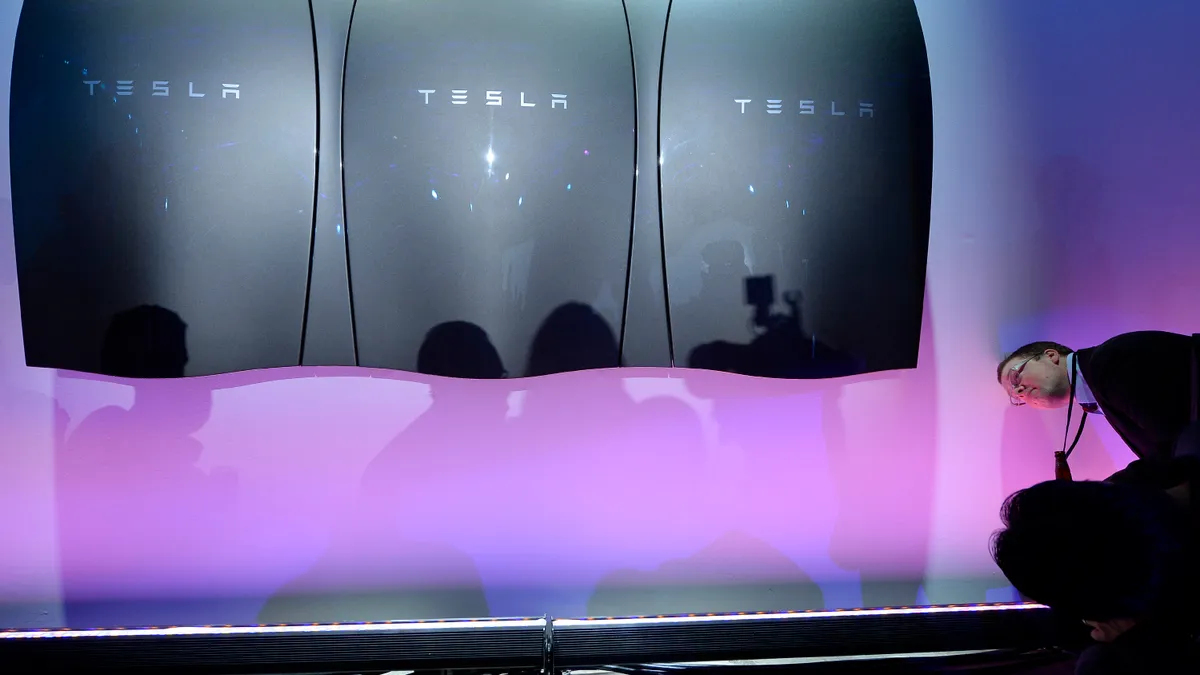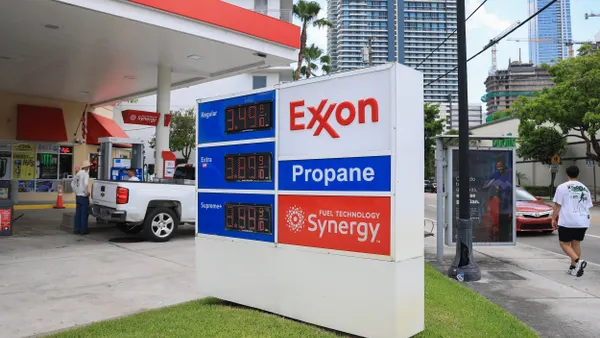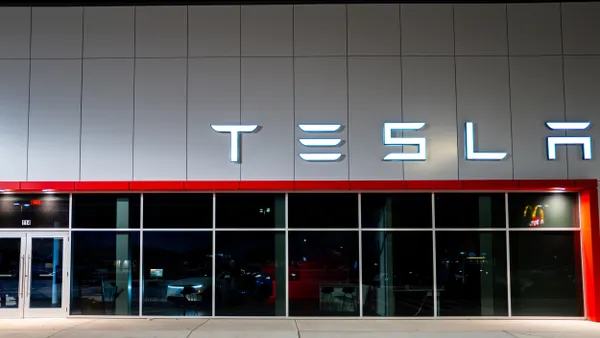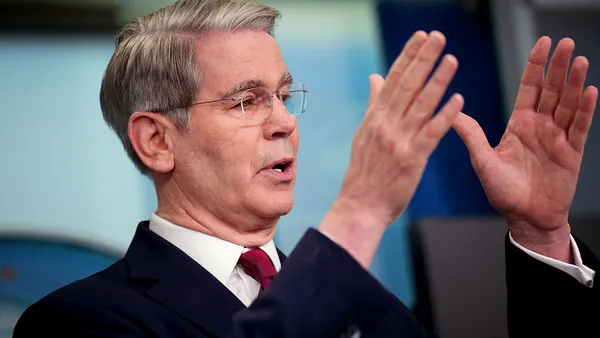Dive Brief:
- Electric vehicle maker Tesla reported stronger-than-expected earnings for its third quarter largely driven by a surge in its energy generation and storage business, which saw a record gross margin of 30.5% for the quarter, according to results released Thursday.
- The company’s energy storage segment, which comprises its Powerwall and Megapack batteries, is growing “like wildfire,” Tesla CEO Elon Musk said during a Q3 earnings call Thursday. For its Q3, Tesla also reported record operating cash flow in the quarter of $6.3 billion, according to its earnings results.
- Despite better-than-anticipated results, company executives pointed to the importance of competitive pricing at a time when the overall EV market is seeing declining demand in the face of continuing inflationary pressures. Tesla’s focus “remains on growing unit volume, while avoiding a build-up of inventory,” CFO Vaibhav Taneja said during the earnings call. “To support this strategy, we're continuing to offer extremely compelling vehicle financing options in every market.”
Dive Insight:
The Austin, Texas-based EV maker’s energy and service segments are becoming “increasingly profitable” parts of Tesla’s business, the company said. Tesla’s Q3 revenue grew 8% year-over-year to reach $25.5 billion, with revenues from its energy generation and storage offerings reaching $2.7 billion, according to earnings materials.
The company also reported nearly $2.2 billion in net income, a 17% jump year-over-year, according to its earnings presentation. CEO Musk put a spotlight on the company’s profitability Thursday, noting “to the best of my knowledge, no EV company is even profitable,” he said. “And I'm not — to the best of my knowledge, there was no EV division of any company, of any existing auto company that is profitable.”
The EV maker’s Q3 results come as the broader industry is vying with a dip in demand and an uncertain regulatory future ahead of the coming U.S. presidential election. Tesla competitors such as Rivian have seen their stock wobble in recent months in the face of growing losses: while the fellow EV maker reported revenues of $1.16 billion, compared to the $1.14 billion expected, its net loss also widened to $1.46 billion, according to an August article by CNBC.
Multiple automakers have also pulled back on EVs in recent months as sales wane — in August, for example, Ford Motor decided to table a future EV project, following similar pullbacks by General Motors, Volkswagen, and Mercedes, according to an August Wall Street Journal report.
While sales of new EVs remained strong in September — cracking over 100,000 for the sixth consecutive month — sales still declined by 14.4% last month, according to data from Cox Automotive. Average prices for EVs have also begun to slump, with the average transaction price for a new EV reaching $56,328 in September, a 0.5% month-over-month decline, according to Cox.
Despite these challenges, Tesla saw a 6% year-over-year increase in total vehicle deliveries for its Q3, reaching 462,890 and leading to an improvement in automotive margins, the company said.
“Sustaining these margins in Q4, however, will be challenging given the current economic environment,” CFO Taneja cautioned Thursday. “Note that we are focused on the cost per vehicle, and there are numerous work streams within the company to squeeze that cost without compromising on customer experience.”
While inflation has weakened, high interest rates are still leading more Americans to keep their cars longer, Taneja said, which is affecting the industry.
Previously Tesla’s chief accounting officer, Taneja has served as its CFO since last August, CFO Dive previously reported. Its previous CFO, Zachary Kirkhorn, departed the company with a net worth of about $590 million.
Over the past three months, Taneja has sold 8,000 shares of common stock in the EV maker, with gross proceeds from the sales of $2 million, according to a Friday securities filing. Taneja sold 4,000 shares of common stock Friday with an aggregate market value of $854,600, according to the filing. As of April, Taneja beneficially owned approximately 1.06 million shares of company stock, according to Tesla’s latest proxy filing with the Securities and Exchange Commission.













